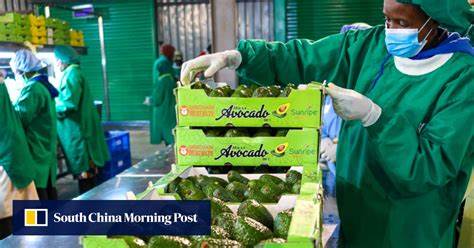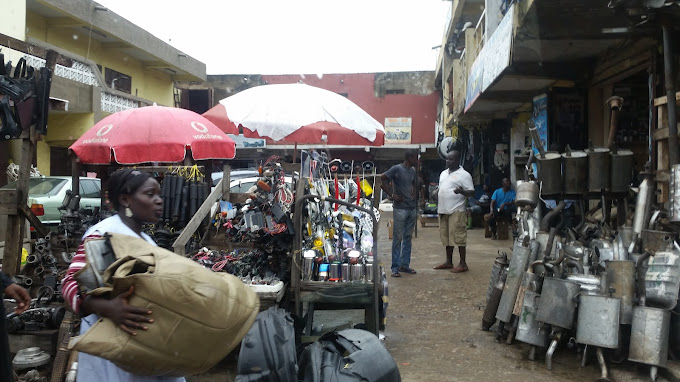In March, a shipment of over 800 African ornamental fish arrived in China through the Changsha Huanghua International Airport in central China’s Hunan Province.
Transported by cargo flight from Addis Ababa, capital of Ethiopia, the fish were transferred to a designated quarantine facility, where they underwent an isolation period and a series of health inspections before entering the Chinese market.
According to the Chinese importer, Hunan XiYue International Co. Ltd, these fish, valued in the market for their bright colors, strong adaptability and ease of breeding, are attracting growing interest from aquarists. The company plans to further expand imports of African ornamental fish and other related aquatic species.
Effective from Dec. 1, 2024, China has granted zero-tariff treatment to all least developed countries (LDCs) with which it has diplomatic relations, including 33 African nations, on 100 percent of their products.
Recently, China announced its readiness to negotiate and sign agreements on economic partnership for shared development with African countries, deliver on the zero-tariff treatment for 100 percent tariff lines, provide more policy facilitation for the least developed countries in Africa, promote trade and investment liberalization and facilitation between the two sides, and encourage more African products to enter the Chinese market.
Thanks to these measures, a growing number of high-quality, affordable African products, ranging from dried anchovies from Kenya to lamb products from Madagascar and rubber from Cote d’Ivoire, are entering the Chinese market, offering Chinese consumers new choices while delivering tangible benefits to African communities.
“When people talk about chili, they often think of China. Everyone knows that our main market is China, and we have many farmers involved,” said Herman Uwizeyimana, general manager of Fisher Global, a Rwandan agricultural company specializing in chili cultivation and export.
Over the past three years, Fisher Global has exported 200 to 300 tonnes of dried chili to China annually. With the boost from China’s recent zero-tariff policy, Uwizeyimana aims to increase exports to 1,500 tonnes per year.
Data released by China’s Ministry of Commerce shows that since the launch of the zero-tariff policy, Chinese imports from African LDCs reached 21.42 billion U.S. dollars by March 2025, marking a 15.2 percent year-on-year increase.
Ethiopian Ambassador to China Tefera Derbew praised the zero-tariff policy, saying that it will not only allow more African products with unique characteristics to enter the vast Chinese market, but also help promote industrialization across Africa.
Cheikh Tidiane Ndiaye, former editor-in-chief of the Senegalese Press Agency, said that China’s policy represents concrete support for exporting African products with higher added value. It gives African producers easier access to one of the world’s largest consumer markets.
Amid a turbulent and evolving global environment, China continues to open its market further to African countries, promoting the export of high-quality African products and expanding their access to the Chinese market.
In addition to the zero-tariff policy, China has established and expanded “green channels” for African agricultural products, facilitated the participation of African businesses in major expos such as the China International Import Expo and the China International Supply Chain Expo, built bridges to help African products access global markets, and supported capacity building in African trade.
In recent years, China-Africa economic and trade cooperation has delivered remarkable results. China-Africa trade reached a record 295.56 billion U.S. dollars in 2024, up 4.8 percent year-over-year, marking the 16th consecutive year China has remained Africa’s largest trading partner.
Boosted by China’s zero-tariff policy for African products and an innovative model integrating production, industry, and trade, the scope of China-Africa economic and trade collaboration continues to expand.
Moreover, China is actively supporting the development of local value chains in Africa. From the opening of the Summit of the Forum on China-Africa Cooperation in Beijing in September 2024, through the end of March 2025, Chinese enterprises invested 13.38 billion yuan (1.86 billion dollars) in Africa. To further assist small and medium-sized enterprises (SMEs), China has provided 2.08 billion yuan in loans, benefiting around 350 SMEs and creating about 4,500 jobs.
“The continent’s development priorities are shifting from raw material exports to value-added production,” said Humphrey Moshi, professor of economics and director of the Center for Chinese Studies at the University of Dar es Salaam in Tanzania. “The China-Africa relationship is evolving beyond traditional trade, toward deeper industrial collaboration and shared value creation.”
“It is no longer just about importing, but co-building industrialization,” said Senegalese Minister of Agriculture, Food Sovereignty and Livestock, Mabouba Diagne. “China is a strategic partner that can drive the structural transformation of our agriculture.” Enditem
Source: Xinhua
Share Us



